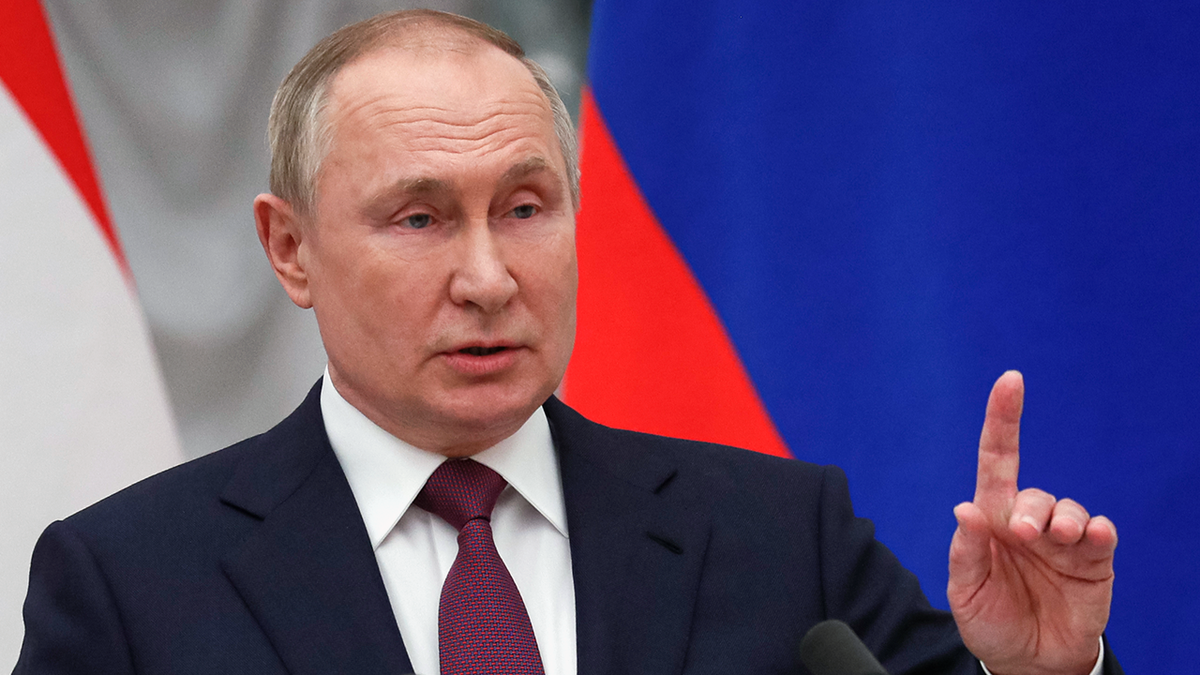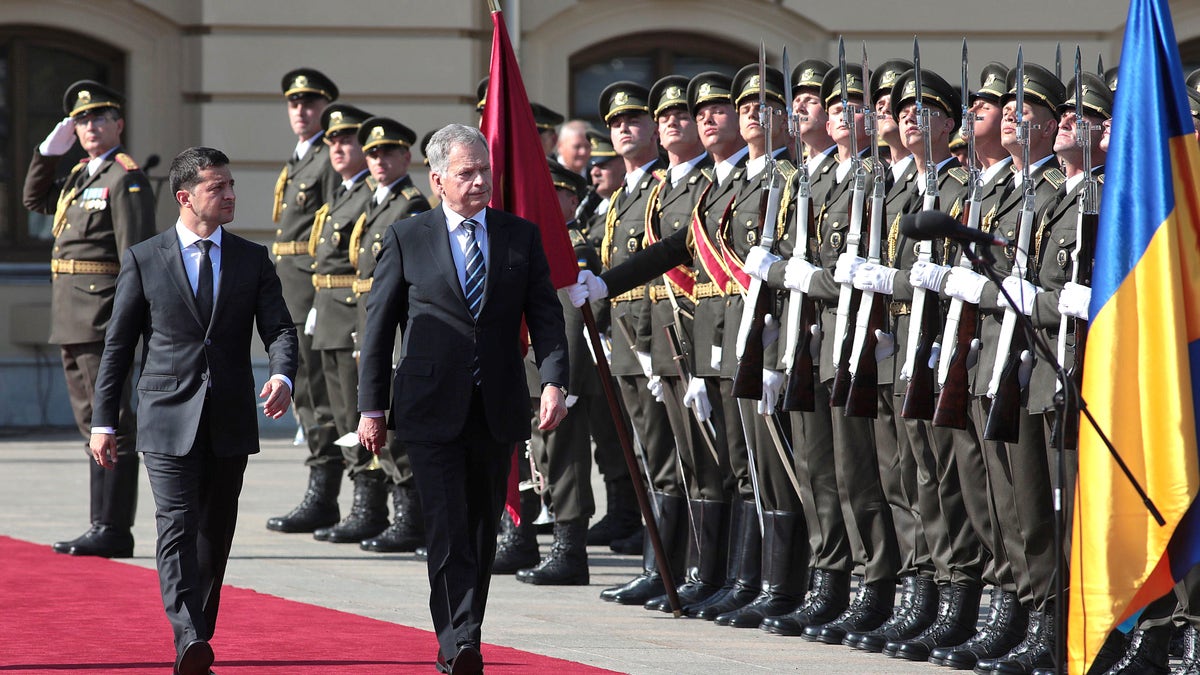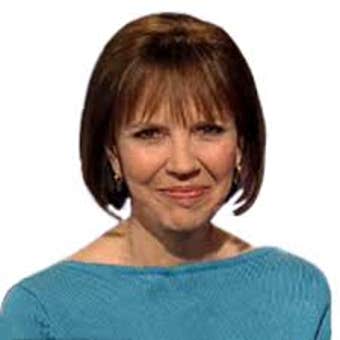Russian threats ‘won’t deter’ Finland from making ‘sovereign decision’ about NATO: Acting US Ambassador to Finland
Acting U.S. Ambassador to Finland Ian Campbell discusses Finland’s move towards joining NATO amid nuclear threats from Russia on ‘Cavuto.’
Despite over two months of trying to bloody and bomb Ukraine into submission to prevent its strategic drift to the west, Vladimir Putin may soon face one of his worst strategic nightmares: the NATO alliance he despises is about to get larger and stronger. And not a minute too soon.
Last week, Sweden’s and Finland’s opposition leaders met with Biden officials in Washington to seek U.S. support for their desire to join NATO. Petteri Orpo, the head of Finland’s center-right National Coalition Party, and Ulf Kristersson, the leader of the opposition in parliament who heads Sweden’s Moderate Party, met with senior Biden administration officials and congressional staffers to press for support of an expanded NATO. While both have long favored NATO membership, strong public support at home for the Nordic states’ long-standing policy of military non-alignment made that unlikely. But public and political sentiment shifted dramatically on Feb. 24th when Putin invaded Ukraine.

FILE - Russian President Vladimir Putin. (Yuri Kochetkov/Pool)
Orpo told Foreign Policy magazine it was now "clear" that Finland’s parliament would decide to apply to join NATO next month. Kristersson said that after a debate, Sweden, which fears being left out of the alliance should Finland join, was likely to do the same. Last Wednesday, NATO membership was endorsed by Aftonbladet, the newspaper of Sweden’s largest social democratic party, which argued that Putin’s brutal invasion of Ukraine had changed Sweden’s security situation.
FINLAND INCHES CLOSER TO JOINING NATO IN RESPONSE TO RUSSIA’S INVASION OF UKRAINE
If both Nordic countries join NATO, the length of the border that separates Russia from the alliance will instantly double. While a stronger, expanded NATO will not undo Ukraine's enormous suffering -- the country' thousands of deaths and the millions of refugees and displaced, the wanton destruction of its villages and cities -- forcing Putin to accept the enlargement of the alliance he has been determined to divide and weaken is the beginning of payback for his war crimes and wanton aggression.
In an interview, Kai Sauer, Finland’s Under-Secretary of State for Foreign and Security Policy, said it was likely that his country would apply for NATO membership in the coming weeks partly because of the shift in public opinion. "A huge majority of the population now favors NATO membership – close to 70 percent," he said. Plus, the strongest political parties that once opposed NATO membership now favor it.
Sauer said that Putin has made the same wrong assumption about Ukraine that Stalin made in 1939 when he invaded neighboring Finland. "Stalin expected little resistance, but the invasion managed to unite the country against him."
From November, 1939, to March, 1940, Finland stunned and inspired the world as its much smaller army held at bay Stalin’s invading force of nearly half a million men and 1,500 tanks. Though the Red Army finally overwhelmed the Finns, Russia lost more than 150,000 men in the "Winter War." "This could be history repeating itself," Sauer said.
SWEDEN PLANS NATO APPLICATION, FINLAND SIGNALS INTENT TO JOIN WITH SECURITY ASSESSMENT: REPORT
The Nordic states more than qualify for NATO membership. Both have highly professional militaries with advanced capabilities on sea, land and air, according to a recent assessment by the Washington-based think tank, CSIS.

FILE – Sept. 19, 2019: President of Ukraine Volodymyr Zelenskyy and President of the Republic of Finland Sauli Niinistö (L to R) walk down the red carpet. (Hennadii Minchenko / Barcroft Media via Getty Images)
Though Finland’s military is relatively small – some 12,000 – the figure does not include its strong border guard, or the fact that its forces are backed by some 280,000 current conscripts and reservists. Moreover, Sauer noted, Finland now spends nearly 2 percent of its GDP on defense, the NATO target, but which few of the alliance's 30 members actually meet. Finland would also bring to the alliance "one of the largest artilleries in Europe" and its formidable technological expertise. Two out of three of the world’s top telecommunications companies are Finnish or Swedish. Finland is also purchasing 64 F-35's.
Alexander Vershbow, a former ambassador to Russia and former Deputy Secretary General of NATO, said that as early members of the Partnership for Peace, both nations attend NATO summits and high level meetings. Their military forces are highly integrated into NATO’s capabilities. "They are at the table," he said. Their joining NATO would strengthen the alliance’s capabilities. But it would also mean that NATO "would be taking on the additional defense requirement of having to defend their long borders." Politically, he added, their admission "would greatly annoy Putin."
Vershbow foresees two challenges, and yes, both are daunting.
First is how best to provide interim security guarantees so that Russia doesn’t attack them between their candidacy and becoming actual members, a process that usually takes well over a year.
CLICK HERE TO GET THE OPINION NEWSLETTER
Second, one or more of the NATO members might object. Germany, for one, might fear antagonizing Russia and reducing the prospects of peace talks and a negotiated settlement of the conflict. Or, Viktor Orban, Hungary’s newly re-elected prime minister, might "drag his feet" under Russian pressure.
Such a potential crisis was averted Sunday in France’s presidential election, when President Emmanuel Macron defeated his right-wing challenger Marine Le Pen, who had vowed to take France out of NATO's allied command and has consistently defended Putin and Moscow’s policies.
Vershbow said Finland and Sweden would likely act soon so they could be invited to begin accession talks at the NATO summit in June. "But we mustn’t begin a fast track accession that runs aground, "he said. "That would become an opportunity, rather than a crisis for Putin."
Moscow has warned both countries that Russia will deploy nuclear weapons in the Baltic region if Finland and Sweden abandon non-alignment. But Russia already has nuclear installations in its Kaliningrad region, less than 500 miles from Helsinki and Stockholm. And military analysts say neither Sweden nor Finland, which has an 800 mile-long border with Russia, has much to fear.
Pete Dordal, Jr, the president of GardaWorld Federal Services, which provides security globally, said that in his personal view, the Nordic states’ strategic shift was a "minor annoyance" for Putin, who is totally focused on his "all or nothing" strategy in Ukraine.
CLICK HERE TO GET THE FOX NEWS APP
"It’s pretty evident that Russia is struggling just to support the invasion of Ukraine, which is not going very impressively," said Gen. David Petraeus, the former CIA director who is now a partner at KKR.
"Given the enormous contributions of weapons system, ammunition, vehicles, and drones, as well as other military equipment from the U.S. and other NATO countries, it is not inconceivable that Ukraine could actually begin to counter-attack in the weeks ahead. Given that, the last thing Putin needs is an additional combat operation in response to Finland and Sweden announcing a desire to join NATO."












































